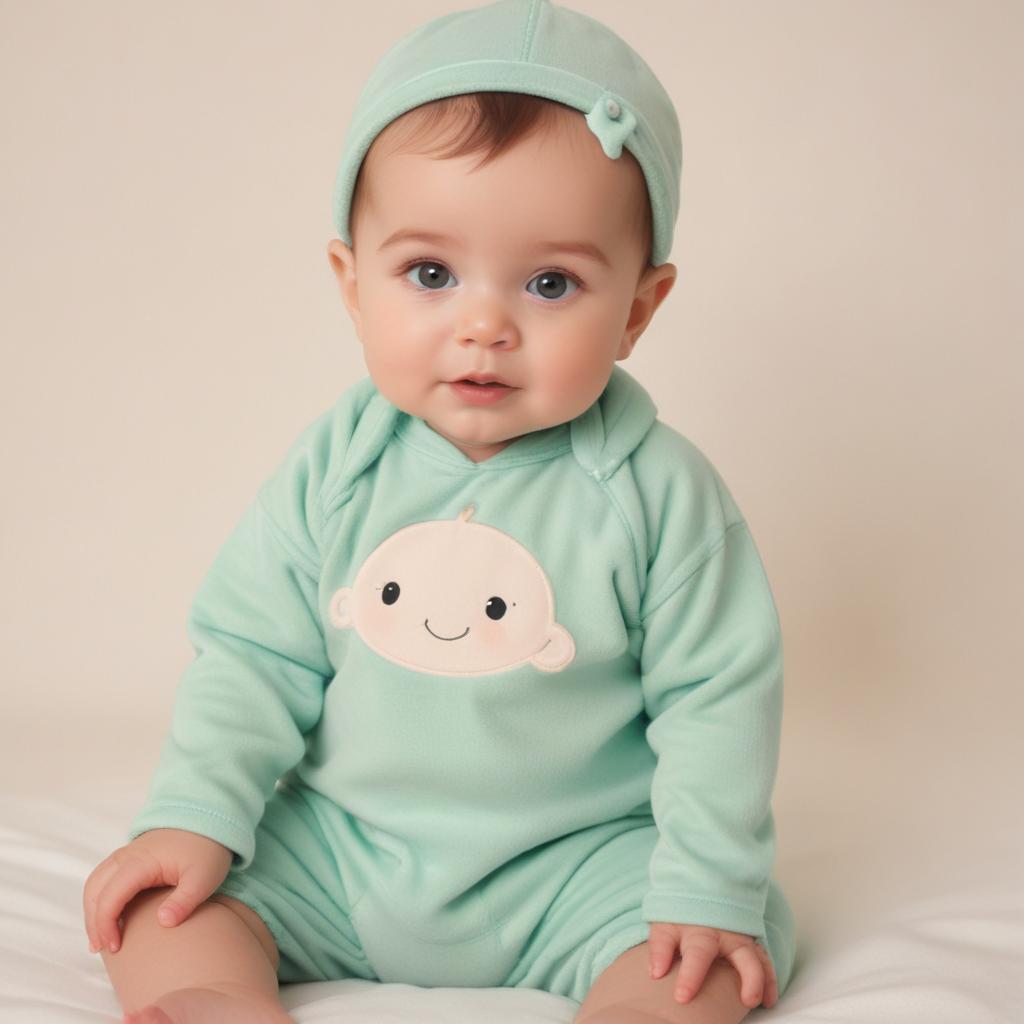Hey there, new parents! Welcoming a new baby into the world is an incredible experience, but it can also be overwhelming. That’s why we’ve put together these 10 essential Baby and Pregnancy Tips to help guide you through this exciting journey.
Main Points:
- Get plenty of rest and take care of yourself during pregnancy.
- Attend prenatal classes to prepare for childbirth and caring for your newborn.
- Create a support network of family and friends to help you during this time.
- Stay hydrated and eat nutritious foods to support both you and your baby’s health.
- Be open to asking for help and seeking advice from healthcare providers.
- Prepare your home for the arrival of your baby by setting up a nursery and gathering essential supplies.
- Educate yourself on safe sleep practices for infants to reduce the risk of SIDS.
- Take time to bond with your baby through skin-to-skin contact and cuddling.
- Stay flexible and be patient with yourself as you navigate the ups and downs of parenthood.
- Trust your instincts and enjoy the journey of becoming a parent.
Creating a Safe Sleep Environment for Your Baby
When it comes to ensuring your baby gets a good night’s sleep, creating a safe sleep environment is crucial. Here are some tips to help you set up a safe and comfortable sleeping space for your little one:
1. Choose the right bedding and mattress
It’s important to choose a firm mattress that fits snugly in the crib to reduce the risk of suffocation. Avoid using soft bedding, pillows, or blankets in the crib to prevent the risk of Sudden Infant Death Syndrome (SIDS).
2. Keep the room at a comfortable temperature
Make sure the room where your baby sleeps is not too hot or too cold. The ideal temperature range for a baby’s room is between 68°F and 72°F. Use a sleep sack or a wearable blanket to keep your baby warm without the risk of suffocation.
3. Practice safe sleep habits
- Always place your baby on their back to sleep to reduce the risk of SIDS.
- Avoid using crib bumpers, as they can pose a suffocation hazard.
- Make sure your baby’s crib meets current safety standards to prevent accidents.
By following these simple tips, you can create a safe sleep environment for your baby and ensure they get the restful sleep they need for healthy development.
Understanding Your Baby’s Cues and Needs
Being a parent is a joyful and rewarding experience, but it can also be overwhelming at times, especially when trying to understand your baby’s cues and needs. Babies communicate in their own unique way, and it’s important for parents to learn how to interpret these cues to provide the best care for their little ones.
Common Baby Cues
There are several common cues that babies use to communicate their needs:
| Cue | Meaning |
|---|---|
| Crying | Hunger, discomfort, or tiredness |
| Rooting | Hungry and looking for food |
| Arching Back | Discomfort or overstimulation |
Meeting Your Baby’s Needs
Once you’ve learned to recognize your baby’s cues, it’s important to respond promptly to their needs. Whether it’s feeding, changing their diaper, or providing comfort, responding to your baby’s cues helps build a strong bond between parent and child.
Remember, every baby is different, so it may take time to understand your baby’s unique cues and needs. Be patient, observant, and responsive, and you’ll soon become an expert at meeting your baby’s needs.
Feeding Essentials: Breastfeeding and Formula
Feeding your baby is one of the most important aspects of parenting, and it can sometimes feel overwhelming. However, whether you choose to breastfeed or use formula, the most important thing is that your baby is getting the nutrition they need to grow and thrive.
Benefits of Breastfeeding:
Breastfeeding is a natural and beneficial way to nourish your baby. Not only does breast milk provide the perfect balance of nutrients, but it also contains antibodies that can help protect your baby from illness and infection.
Benefits of Formula Feeding:
If breastfeeding is not an option for you, formula feeding can also provide your baby with all the essential nutrients they need to grow and develop. Formula feeding allows other caregivers to participate in feeding, giving you some flexibility and freedom.
Remember, whether you choose to breastfeed or use formula, what matters most is the love and care you provide for your baby. Trust your instincts and do what feels right for you and your little one.
Bonding Activities for New Parents and Babies
Welcoming a new baby into the world is an exciting and joyful experience, but it can also be overwhelming for new parents. Bonding with your baby is important for building a strong and loving relationship. Here are some fun and meaningful activities you can do to bond with your little one:
1. Skin-to-Skin Contact
One of the best ways to bond with your baby is through skin-to-skin contact. Holding your baby close to your skin can help regulate their body temperature, heart rate, and breathing. It also promotes bonding and helps establish a strong emotional connection between parent and child.
2. Reading Together
Reading to your baby is a great way to bond and stimulate their developing brain. Choose colorful picture books with simple words and bright images. Your baby will love hearing the sound of your voice and looking at the pictures with you.
3. Baby Massage
Gentle baby massage can help soothe your little one, promote relaxation, and strengthen the bond between parent and child. Use soft organic oils and gentle strokes to massage your baby’s arms, legs, and back. It’s a wonderful way to show your love and care.
4. Singing and Dancing
Babies love music and movement, so why not have a little dance party with your little one? Singing lullabies or playing upbeat songs can help create a fun and bonding experience for both you and your baby.
5. Mommy and Me Yoga
Joining a mommy and me yoga class can be a great way to bond with your baby while also taking care of yourself. Yoga promotes relaxation, bonding, and physical activity for both parent and child. It’s a holistic approach to bonding and wellness.
6. Nature Walks
Taking your baby for a stroll in nature can be a calming and stimulating experience. The fresh air, sights, and sounds of nature can be soothing for both you and your baby. It’s a great way to bond while getting some light exercise.
7. Mealtime Bonding
Feeding your baby is a special bonding time that can create a strong emotional connection. Whether you’re breastfeeding or bottle-feeding, use this time to look into your baby’s eyes, talk to them, and enjoy the closeness that mealtime brings.
| Activity | Description |
|---|---|
| Skin-to-Skin Contact | Holding your baby close to your skin for physical and emotional bonding. |
| Reading Together | Stimulating your baby’s brain development through colorful picture books. |
| Baby Massage | Relaxing your baby and strengthening the parent-child bond through gentle massage. |
Try these bonding activities with your new baby to create a strong and loving connection that will last a lifetime.
Why Regular Well-Baby Checkups Are Important
Hey there, parents! As you navigate through the early stages of your baby’s life, it’s crucial to prioritize their health and development. One way to ensure this is by scheduling regular well-baby checkups with your pediatrician.
Consistency
By attending these scheduled appointments, you are providing your baby with consistent care and monitoring. This allows the pediatrician to track your baby’s growth, development, and overall health over time.
Prevention
Regular well-baby checkups also play a critical role in preventive care. By staying on top of vaccinations, screenings, and health assessments, you can help prevent potential health issues or detect them early on.
Educational Opportunities
These checkups are not just about physical exams; they also offer you the chance to ask questions, address any concerns, and learn more about your baby’s milestones and needs. Your pediatrician can provide valuable guidance and support as you navigate parenthood.
Remember, consistency, prevention, and education are key when it comes to your baby’s health. So, make sure to prioritize those regular well-baby checkups – your little one’s well-being is worth it!
Managing Stress and Self-Care for New Parents
Being a new parent can be one of the most rewarding experiences in life, but it can also be incredibly stressful. From sleepless nights to constant worrying, the demands of parenthood can take a toll on your mental and physical well-being. It’s important for new parents to prioritize self-care and find ways to manage stress in order to be the best parents they can be.
The Importance of Self-Care
Self-care is not selfish, it is necessary for your own well-being and for the well-being of your child. Taking care of yourself allows you to be more present and engaged with your baby, and helps you to better cope with the challenges of parenting. Whether it’s taking a few minutes to yourself each day, getting regular exercise, or seeking support from loved ones, self-care should be a priority.
Managing Stress
Stress is a common experience for new parents, but it’s important to find healthy ways to cope. One strategy is to practice mindfulness and stay in the present moment. This can help reduce anxiety and prevent overwhelm. Additionally, seeking support from other parents, joining a parenting group, or talking to a therapist can provide valuable tools for managing stress.
“Taking care of yourself is not a luxury, it is a necessity.”
Self-Care Tips for New Parents
| Tip | Description |
|---|---|
| 1. Prioritize sleep | Try to rest when the baby sleeps and ask for help from your partner or family members. |
| 2. Eat nutritious meals | Fuel your body with healthy foods to boost your energy levels and overall well-being. |
| 3. Take breaks | It’s okay to take some time for yourself to recharge and relax. |
Remember, managing stress and practicing self-care is essential for your own health and for the well-being of your child. By taking care of yourself, you can be a more present and patient parent, and create a positive environment for your family.
Conclusion
In conclusion, it is important to remember that every pregnancy is unique, and what works for one person may not work for another. It is always best to consult with your healthcare provider for personalized advice and guidance. By following some of the Baby and Pregnancy tips mentioned in this blog, you can ensure a healthy and happy pregnancy journey. Remember to take care of yourself, listen to your body, and enjoy this special time in your life.
Frequently Asked Questions
What are some common symptoms during pregnancy?
Some common symptoms during pregnancy include morning sickness, fatigue, frequent urination, and mood swings.
Is it safe to exercise during pregnancy?
In general, it is safe to exercise during pregnancy. However, it is recommended to consult with your healthcare provider to determine the best exercise routine for you.
What are important nutrients to include in a pregnancy diet?
Important nutrients to include in a pregnancy diet are folic acid, iron, calcium, and omega-3 fatty acids.
How can I prepare for labor and childbirth?
You can prepare for labor and childbirth by attending prenatal classes, creating a birth plan, and discussing any concerns with your healthcare provider.
What are some essential items to have ready for the baby’s arrival?
Some essential items to have ready for the baby’s arrival include a crib, diapers, baby clothes, feeding supplies, and a car seat.


